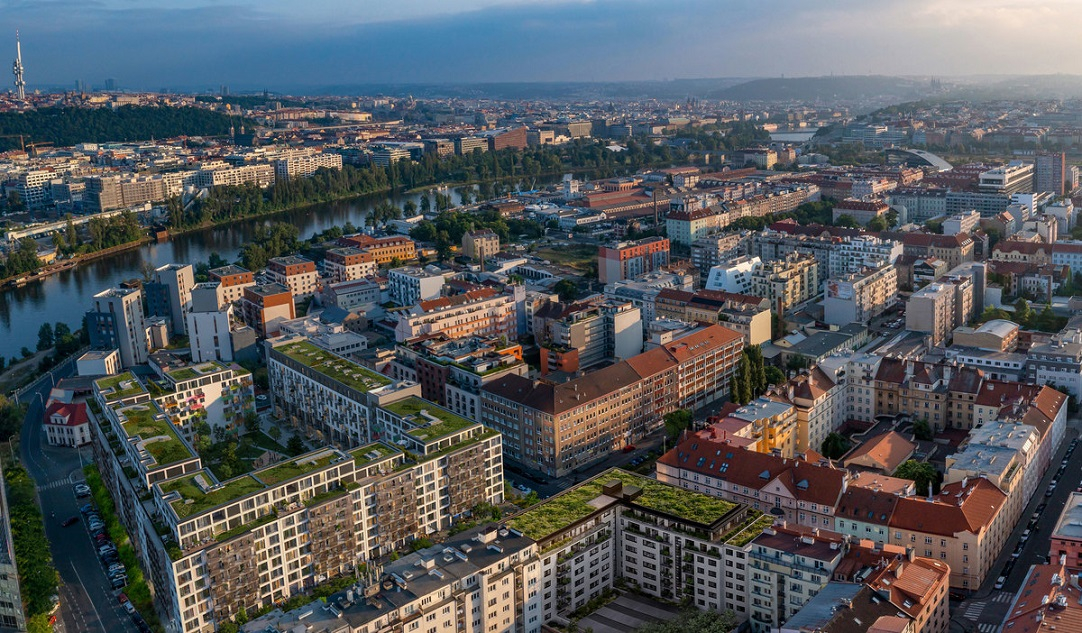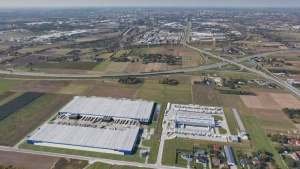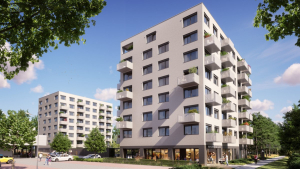
CBRE has analysed the Czech commercial real estate market in detail and estimates that the next six months of this year will be as strong as the first six months of the year, which hit the €1.15 billion mark. By the end of the year, according to CBRE, the €2 billion level should be reached, similar to last year and the year before.
Investment in real estate in the Czech Republic reached €1.15 billion in the first half of this year. CBRE, which has carried out an extensive market analysis, expects the second half of the year to be roughly as strong so that investments will reach the €2 billion mark by the end of the year, similar to last year or the year before. "Investors continue to perceive the domestic market as high quality and the most stable in the CEE region. They positively evaluate the local legal and financial environment, the quality and availability of the workforce and the returns achieved. Depending on the type of segment, these are 50 to 150 basis points higher than in Western European countries," notes Jakub Stanislav, Director at CBRE.
Real estate prices have reached their peak and will not get much lower
The positive news is that the current situation, according to CBRE, is fundamentally different from the financial crisis of 2008. The Czech market has developed a lot since then and is in good shape, as evidenced by the low vacancy rate. At the same time, property owners are well prepared for various eventualities, have financial reserves and are not forced to sell. Therefore, property prices will not fall significantly as they did during the last crisis. "We currently perceive that the imaginary scissors between buyers and sellers are open, which means that both parties have a different idea of the price. Last year a record number of transactions were completed, but this year there are more negotiations. In any case, property owners do not want to sell at a lower price and there is nothing forcing them to do so. They have plenty of liquidity, so they will wait for a better offer. We expect these expectations to converge towards the end of this year and to be fully reflected at the beginning of next year. Buyers will fully realise that the price will not be more attractive - and the market will shift back to the sellers' side," comments Jakub Stanislav.
And the yields?
The domestic commercial real estate market is strongly supported by strong banking institutions that are able to finance local developers and foreign investors, both in crowns and euros. This is certainly not the case in all other countries in the region, be it Poland, Slovakia or Hungary. All these factors give confidence to the domestic economy and contribute to the good functioning of the market. On the other hand, banks always reflect their future outlook in the cost of funding, but we do see the ability of local banks to finance transactions in euros. For this reason, too, it is clear that the real estate market is about to change. We have moved beyond the period when there was compression and the yield went down.
"To put it simply, property prices have peaked this year and the yields have bottomed. They are currently at the same level as last year or the year before, but they are rising. We expect that as interest rates change on euro loans, which are primary to yields (98% of investment deals are euro deals), yields will rise 25-50 basis points across all categories except retail parks by year-end. While we expect yields to go up due to inflation, property owners will be helped to balance this change by the rental growth that has been evident across all segments since the end of last year," explains Jakub Stanislav.
The upward trend in rents is undeniable, particularly in new office buildings, where new space is no longer being offered below €14.50 per sqm per month, and in the logistics and industrial sectors. In the capital, for example, warehouse rents are reaching €8 per sqm per month, although they were still between €5 and €5.50 in 2018. A significant jump occurred last year, even so substantial that the logistics sector in Prague and the surrounding area recorded the highest growth among the five fastest in Europe. It all goes hand in hand with how little is being built in the Czech Republic. The supply of new commercial space is limited and tenants have to pay higher rents for it.



